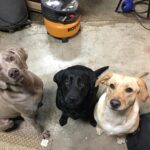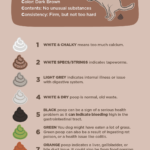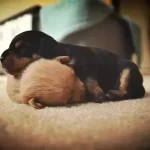Why Do Dogs Pant At Night
Why Do Dogs Pant at Night: Causes, Effects, and Solutions
Dogs are curious and fascinating creatures that have been domesticated for thousands of years. They are loyal companions, protective guardians, and playful friends. However, they can also be noisy sleepers, especially when they pant at night. Why do dogs pant at night? Is it normal or a sign of a health problem? What can you do to help your dog sleep better and quieter? In this article, we will explore the answers to these questions and more.
Causes of Dog Panting at Night
Panting is a natural behavior for dogs that helps them regulate their body temperature, especially when they are hot or excited. However, panting can also be a symptom of various conditions that affect their respiratory system, cardiovascular system, nervous system, or metabolism. Here are some possible causes of dog panting at night:
– Heatstroke: Dogs can overheat if they are exposed to high temperatures or humidity for too long, especially if they cannot cool down by sweating like humans do. Heatstroke can cause panting, drooling, vomiting, diarrhea, seizures, coma or death if not treated promptly.
– Anxiety: Dogs can feel anxious or afraid of loud noises, new environments, separation from their owners or other pets, or past traumas. Anxiety can trigger panting, pacing, whining, barking or destructive behavior.
– Pain: Dogs can suffer from various types of pain such as arthritis, dental problems, injuries or illnesses. Pain can make them restless, uncomfortable or unable to sleep peacefully.
– Medications: Dogs may need to take medications for various reasons such as allergies, infections or chronic diseases. Some medications may have side effects such as panting, lethargy or nausea.
– Obesity: Dogs that are overweight or obese may have difficulty breathing properly due to excess fat around their chest and abdomen. Obesity can also increase the risk of other health problems such as diabetes, heart disease or cancer.
– Aging: Dogs that are older may have weaker muscles, joints and organs that can affect their breathing, circulation or metabolism. Aging can also increase the risk of cognitive dysfunction, which can cause confusion, disorientation or restlessness.
Effects of Dog Panting at Night
Panting at night can have various effects on dogs and their owners. Here are some possible effects:
– Disruptive sleep: Dogs that pant loudly or frequently at night can disturb their own sleep and their owners’ sleep. This can lead to fatigue, irritability, and poor performance during the day.
– Dehydration: Dogs that pant excessively can lose water and electrolytes from their body, which can lead to dehydration, especially if they don’t drink enough water. Dehydration can cause various symptoms such as dry mouth, lethargy, weakness or collapse.
– Hyperventilation: Dogs that pant rapidly or shallowly may hyperventilate, which means they breathe faster than they need to and exhale too much carbon dioxide. Hyperventilation can cause dizziness, tingling in the limbs, blurred vision or fainting.
– Stress: Dogs that pant due to anxiety or pain may suffer from stress, which can affect their immune system, digestion, skin or behavior. Chronic stress can lead to depression, aggression or other mental health problems.
– Health risks: Dogs that pant due to underlying health conditions may be at risk of complications such as organ failure, infection or cancer. Early detection and treatment are crucial for minimizing these risks.
Solutions for Dog Panting at Night
The best solution for dog panting at night depends on the underlying cause and severity of the problem. Here are some possible solutions:
– Cool down: If your dog is hot and panting due to heatstroke or exercise, you should cool them down gradually by providing shade, water, and air conditioning. Do not use ice or cold water as this may shock their system. You can also wet their paws or ears with cool water, apply a damp towel to their body, or give them frozen treats.
– Calm down: If your dog is anxious and panting due to fear or separation anxiety, you should try to calm them down by providing a safe and familiar environment, playing soothing music, using pheromone sprays or diffusers, or giving them a comfortable bed or crate. You can also consult a veterinary behaviorist for more specialized advice and medications if needed.
– Check up: If your dog is panting due to pain or illness, you should take them to the vet for a check-up and diagnosis. The vet may need to perform some tests such as blood work, X-rays, or ultrasound to determine the cause of the problem. The vet may also prescribe some medications such as pain relievers, anti-inflammatory drugs, antibiotics or steroids depending on the diagnosis.
– Manage weight: If your dog is panting due to obesity, you should manage their weight by providing a balanced diet, limiting treats and table scraps, increasing exercise and playtime gradually under supervision. You can also consult a veterinary nutritionist for personalized recommendations and portion control.
– Monitor aging: If your dog is panting due to aging, you should monitor their health closely and provide supportive care such as joint supplements, senior diets, regular check-ups, cognitive enrichment activities and attention. You can also consult a vet for age-related issues such as hearing loss, vision loss or dementia.
Conclusion
In summary, dog panting at night can be caused by various factors such as heatstroke, anxiety, pain, medications, obesity or aging. Panting at night can have various effects on dogs and their owners such as disruptive sleep, dehydration, hyperventilation, stress or health risks. The best solution for dog panting at night depends on the underlying cause and severity of the problem, but it may involve cooling down, calming down, checking up, managing weight or monitoring aging. As a responsible pet owner, you should observe your dog’s behavior and health regularly, seek professional advice if needed, and provide them with love, care, and attention. Happy sleeping!



